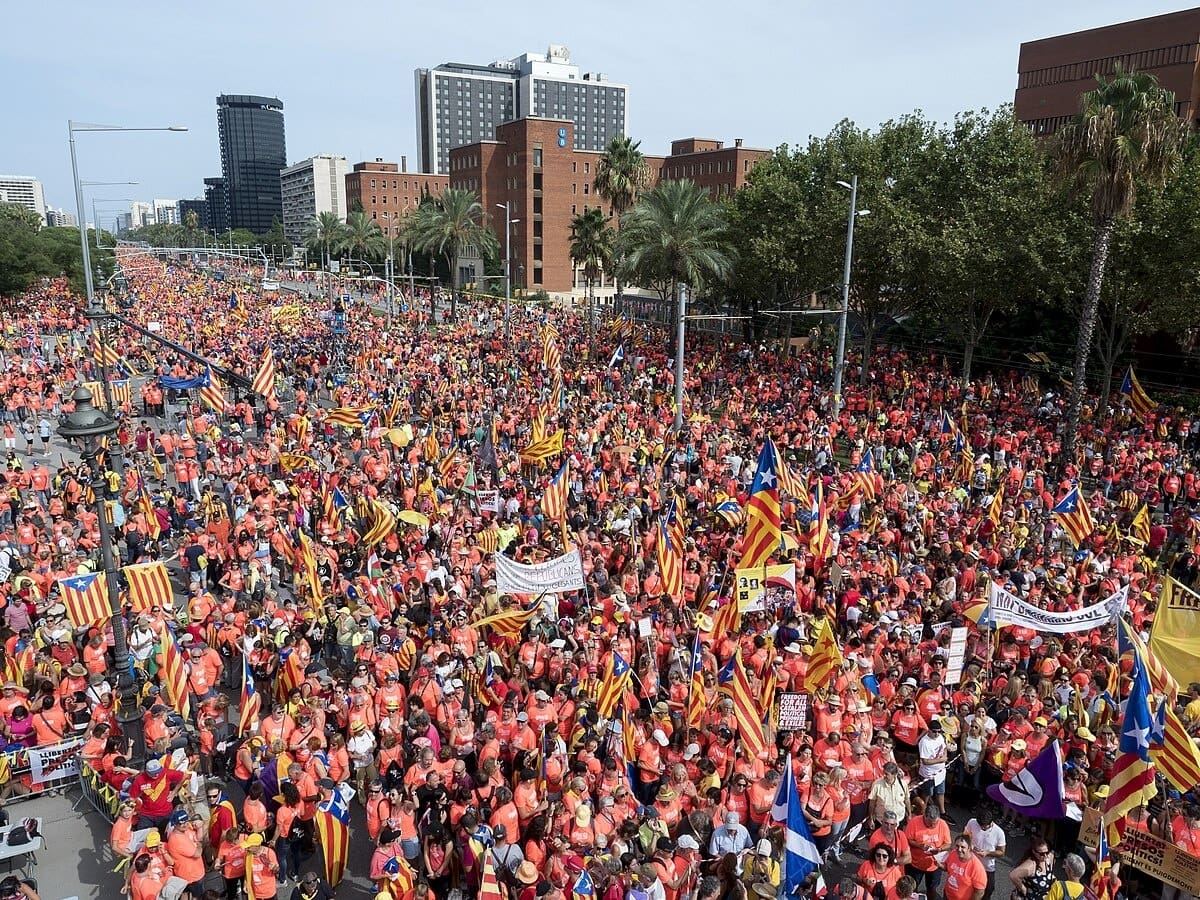On 12 May 2024 there were Catalonia elections to the Catalan Parliament. The Spanish and international press only highlighted the fact that Puigdemont did not come first.
The winning candidate, Salvador Illa of the PSC (Catalan branch of the PSOE), is hardly mentioned, because he does not seem to have won because of who he is, but because he is in charge of the state campaign to try to electorally defeat Catalan independence, a movement that has won every election since 2012 with an absolute majority.
And from ‘Catalan independence has lost!’ they want to conclude ‘Catalan independence is over!’, even though it is not clear that Illa will be able to form an anti-independence government (because he would need the participation of ERC, a pro-independence party). And ERC may rather support Puigdemont to form a pro-independence government or, if there is no agreement, we will go to new elections.
Catalonia’s elections: results don’t match the reality
The PSC (pro-Spanish social democrats) got 42 MPs, Junts (pro-independence social democrats and liberals) got 35 MPs, 20 for ERC (pro-independence social democrats), 15 for the PP (pro-Spanish right-wing), 11 for VOX (Spanishist extreme right), six for the Comunes (nationally undefined left), four for the CUP (pro-independence left) and two for Aliança Catalana (a new extreme right-wing pro-independence party, in line with what is happening in Europe, but contrary to the anti-fascist tradition of the pro-independence movement).
Despite the fact that an amnesty law is about to be passed to defuse the ‘lawfare’ (judicial dirty war) that Spanish nationalism has been using against Catalan independence, there has still been persecution in these elections.
Puigdemont has had to campaign from Northern Catalonia (currently in French territory), unable to tour Catalonia because he would have been arrested, and also unable to participate in televised debates. And despite this disadvantage (which in other countries would have annulled the elections due to the lack of equality between the contenders), Puigdemont’s result has been very acceptable: he has surpassed his previous result by 100,000 votes and has come within seven seats of the winner.
Pro-independence movement holding ground
The pro-independence movement as a whole has maintained the votes of the previous elections, but has lost 700,000 votes compared to 2017. This loss was mainly due to ERC, which had already been losing votes for some time and has now lost 170,000 votes compared to the previous elections, but 500,000 compared to 2017.
The electorate has punished the Catalan government of ERC for changing course, for wanting to stop the emancipation movement, for talking about postponing independence for more than 20 years, and for continually submitting to the designs of the Spanish government. This electoral setback has pushed the ERC leadership to resign and announce a process of self-criticism and redirection.
Therefore, anyone who wants to see in the loss of the absolute majority of the pro-independence movement that this movement is over will have difficulty understanding what is to come, because the yearning for freedom is still alive, and this has only been an electoral turbulence due to the difficulty of agreeing on how to manage Spanish hostility.
So this electoral defeat, therefore, is not the defeat of those who are still at loggerheads with the state, but of the party that had relegated the struggle for independence to the management of domestic affairs.
Catalonia elections: the anger is rising
And stretching this feeling of anger, many voters do not forgive that, in general, all pro-independence parties did not dare to undertake independence in 2017 (for fear that Spain would provoke a bloodbath), nor that, having had 52% of the votes in the Catalan Parliament, they have been inhibited from moving towards independence.
Returning to the present, it remains to be seen who will end up forming a government in Catalonia, but even if the pro-independence parties are unable to do so, it will continue to advance because (unlike what they think in Madrid) the parties are not the driving force behind independence, but rather it is a transversal social movement born of a real and historically omnipresent yearning in Catalonia.
However, given that this struggle also needs institutional force, if the electoral penalty serves to break the deadlock and causes the movement to advance together, the road to independence will once again be inexorable.
Featured image via Òmnium Cultural




